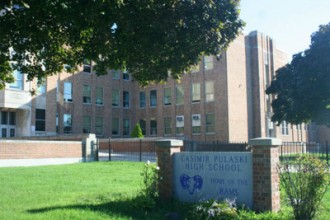As parents, it’s pretty nice when our kids teach us a lesson or “show us how it’s done.”
At a time when much political debate in Wisconsin and nationally seems intensely partisan, personal and petty, more reasoned and rational political discussion comes from a local group of high school students who annually take part in a national civic education program and competition known as We the People: The Citizen and the Constitution.
The nationwide program is designed to promote civic competence and responsibility among students. More than 30 million students and 90,000 educators have participated in We the People since it was founded in 1987.
Here in Milwaukee, five teams recently participated in the We the People state finals competition at Marquette University Law School. Previous competitions were held at the State Capitol, but the higher educational venue at Marquette seems more appropriate than the legislative one in Madison these days.
Wauwatosa West High School won this year’s competition, followed by Wauwatosa East and other schools such as South Milwaukee and Hartford. It’s the fifth straight State win for Tosa West, while Tosa East and Heritage Christian of Brookfield have each won numerous state titles in the last 25 years. The state winners and possible alternates are eligible to compete in the national finals in Washington, D.C. in late April, but must also raise significant funds for the trip.
I am fortunate enough to be following and closely watching this year’s competition since my son is currently studying and competing with about 25 other juniors from Tosa West.
Each school in We the People divides their team into groups of four or five students. The groups work to prepare four-minute opening statements to three different questions, which they read to a panel of expert judges. The panel includes lawyers, teachers or college professors. The panel grills the students for six minutes on their statements or any other area of knowledge related to the question. The judges score the group on their answers, as well as their presentation skills.
One of the many impressive things about the We the People program is the extremely fair and mostly non-partisan nature of the debates. While students often disagree on the details, language and meaning of the Constitution and its legacy, their discussions proceed in a respectful and academic manner.
Young people are an easy target in our society today, and really have been throughout history. We want them to excel, succeed and “do better than we did,” but see them portrayed culturally as mischievous pranksters and slackers from Tom Sawyer to Dennis the Menace to Bart Simpson.
When it comes to the We the People, we get to see a glimpse into the wireless Millennial generation too rarely displayed or detailed in the media. Rather than discussing video game strategies, sports scores or the latest fashion, these kids are scrutinizing topics like constitutional law, historical court cases and current political issues.
For comparative purposes, young people tend to be more politically liberal than conservative, as 64 percent of the Occupy Wall Street movement is under age 35, while only 16 percent of the Tea Party is under age 30. Either way, they are likely more politically active and engaged than we give them credit.
Two Tosa West juniors explained how We the People demands a balance of academic focus and emotional investment.
Elizabeth Pierce spoke highly of the We the People experience. “It is surely something I will never forget and we’re learning about the government, politics and how to be civically involved,” Pierce said. “You should be determined to win and passionate, but you also need to spend lots of time preparing so it all becomes worth it in the end.”
Besides the facts and cases involved in a program like We the People, there is a significant emotional investment by the students, families and community.
“When they were announcing the winners, we could hear or own hearts pounding like someone was just holding it up to our ears,” said Tosa West junior Elizabeth Kuna-Hildebrandt. “We were squeezing onto each other’s hand as if we were holding on for our lives. We came to know and love one another that it was like a family thing. Winning state was something we all wanted, and I think winning made us come closer together.”
The high school We the People experience has led some alumni toward college majors, law schools and future careers. Emily Roznowski is a freshman studying political science and pre-law at the University of Chicago, while also helping out as a teaching assistant at Tosa West where she competed in We the People two years ago.
“As a college student, I use the skills I learned in We the People every day,” Roznowski said. “I can formulate intelligent arguments in class discussions, think quickly on my feet and research and write complicated papers. I know that the foundational skills that I learned in We the People will continue to help me be successful in college, graduate school and my future career as a lawyer or political strategist.”
About the only negative coming from the We the People program is a question posed by some parents: Why more schools don’t participate.
Tosa West teacher and We the People coach Chad Mateske believes more exposure would generate interest, but notes other barriers. “I feel that sometimes red tape surrounding the adoption of new curriculum can discourage more districts from adopting the We the People program,” Mateske said. “I think that the students are required to know government before they graduate, but not necessarily the civic engagement side of what this curriculum fosters. It also requires teachers with a breadth of background knowledge to assist their students’ research, willing to put the extra time required to lead their kids to a successful experience and finally a leap of faith from teachers as the competition is a reflection of their teaching and ability to prepare their kids.”
If more schools participate in We the People or similar programs, we might actually have some civil and conscientious political debates in Wisconsin, Washington, D.C. and elsewhere.

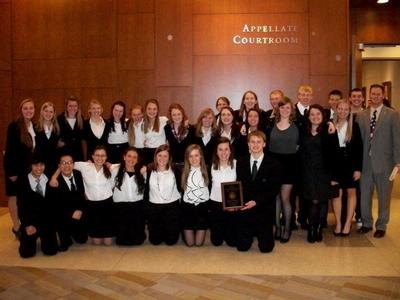
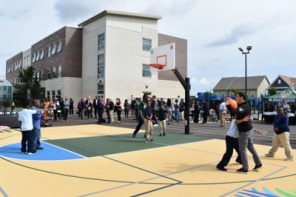 i evaluate to yes even if there's no image
i evaluate to yes even if there's no image 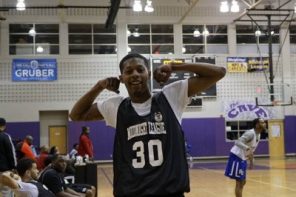 i evaluate to yes even if there's no image
i evaluate to yes even if there's no image 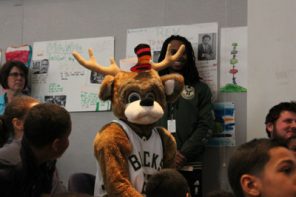 i evaluate to yes even if there's no image
i evaluate to yes even if there's no image 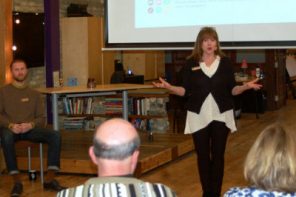 i evaluate to yes even if there's no image
i evaluate to yes even if there's no image 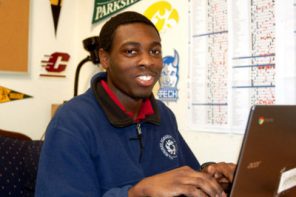 i evaluate to yes even if there's no image
i evaluate to yes even if there's no image 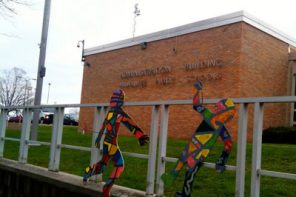 i evaluate to yes even if there's no image
i evaluate to yes even if there's no image 